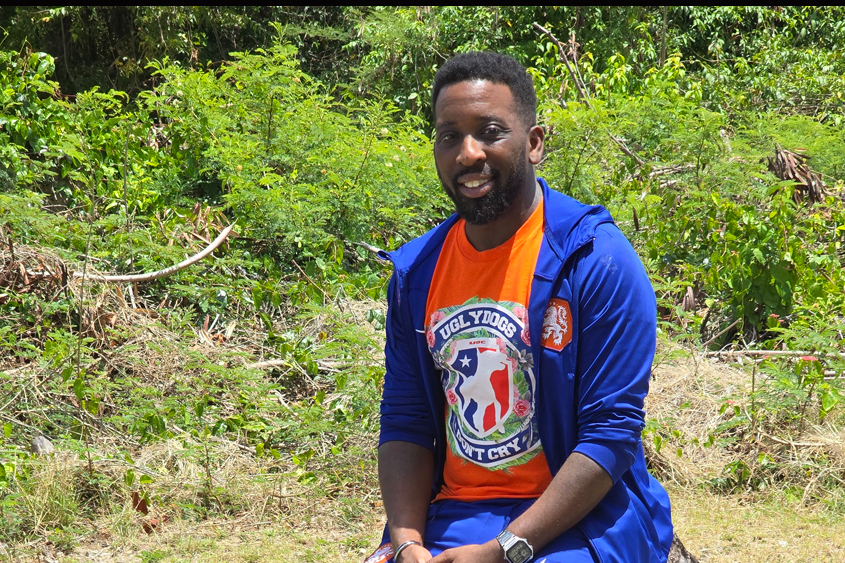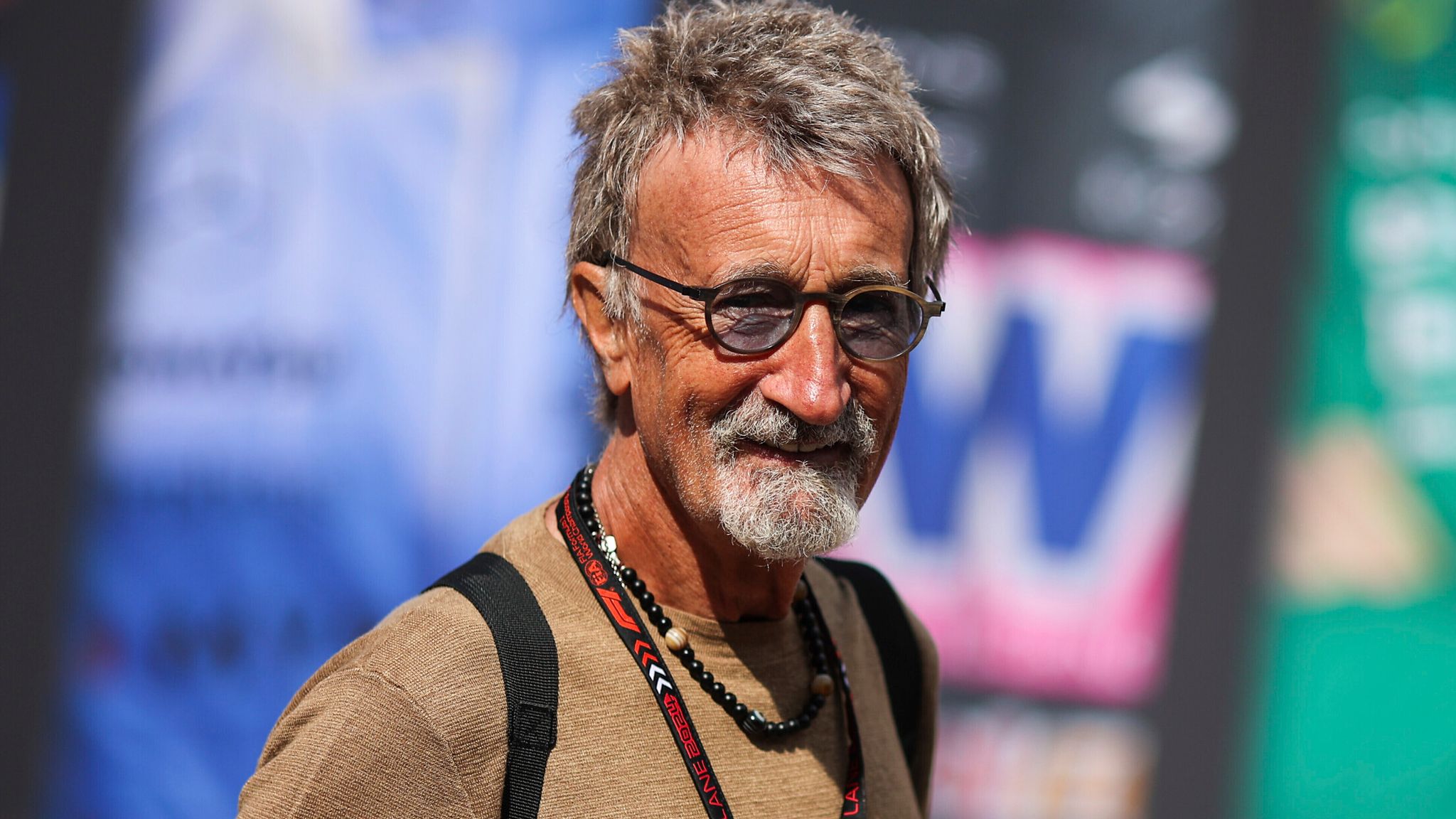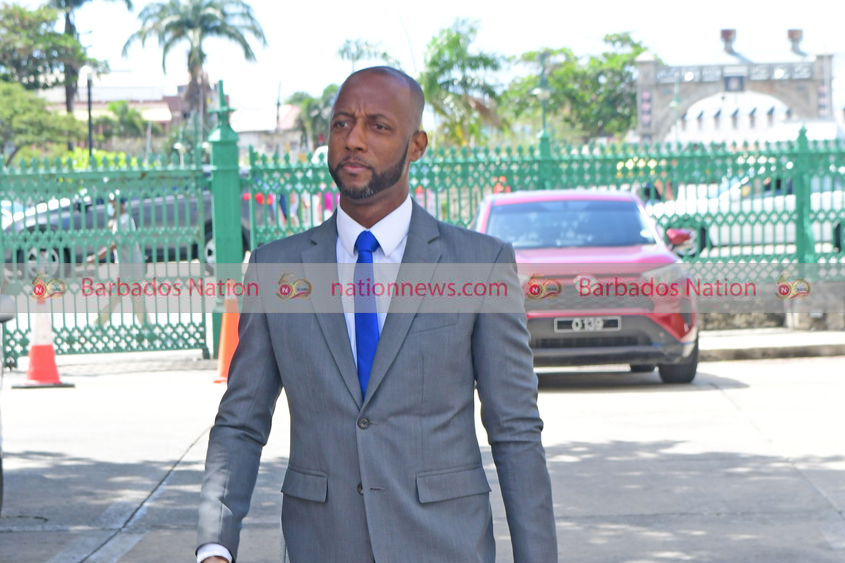

It was while on remand in prison that D.D. Armstrong wrote his first book.
Today he is an accomplished author, playwright and international educator, who holds a master of arts degree in stage and screenwriting after earning a scholarship from Regents University. He is also the creator of the Beyond Words Anthology, teaches self-development through creative writing to prisoners in the United Kingdom and the United States (US) and is a script consultant.
Armstrong has met the now late Queen Elizabeth and the then Prince Charles, now King Charles; has worked in the British Broadcasting Corporation’s Writers Room; and has also been a consultant of British featured films, including The Intent and Adulthood.
With so many accomplishments to his name, it is hard to believe that Armstrong, the son of a Barbadian-born mother and Trinidadian-born father, was expelled from school and two colleges before he was 18 years old.
You can say that his stint in prison did him well, as it was while behind the walls and iron bars that he used his time in jail to rise above his failures and mushroomed into a cultured and fine citizen.
Today, like a phoenix who has risen from the ashes, Armstrong’s comeback is nothing short of amazing.
Growing up in the UK, he cherished thoughts of becoming a comic book artist or a teacher, but at 13, he hit rock bottom to some degree.
“Around 13, while in high school, I became lost for direction. My dad frowned on my love for art. I rebelled. I was expelled from school and later from two colleges and I started to get into trouble with the law. In fact, between 15 years old and into my early 20s, I was always getting into trouble with the law.
“I left home early and was just floating around. I would still attend college, but it was difficult. Sometimes I would go to court in the morning and attend college in the afternoon,” he said.
Around the age of 20, in 2000, he was arrested and imprisoned.
“That’s when I became immersed in literature. I spent a year on remand waiting for my case to go to trial. Being in prison actually took me away from what was leading me astray.
“I was in a cell with an older inmate who had spent lots of time in jail. It was he who challenged me to read. I read a book for the first time from front to back. I was so consumed with reading that I read about 100 books during my time in jail. I started off reading gangster books, then biographies of gangsters and self-help books. Soon, I started writing from behind bars.”
Armstrong followed writers such as Donald Goines, Mario Puzzo, who wrote The Godfather; the late Alex Wheatle – a UK author and screenwriter, and Courttia Newland, a Bajan/Jamaican writer from
the UK.
“I started writing about what was going on in jail and I wrote some short stories. My first short story was about being on the streets. After remand, the case went to trial, and was thrown out,” he said/.
“Once out of prison, I got a job as a production assistant with a television and film production company, specialising in documentaries.”
By then Armstrong was a happy dad of one.
Sadly, within 18 months, the company where he worked went into liquidation.
“I was made redundant and found myself back on the streets. I then decided I would write a book and get a publishing deal. So, I cut myself off from all my friends, isolated myself, and just wrote.
“At the end of five months, I had completed my first manuscript. My first book was titled, Lynch’s Road. It was about a drug dealer and it questioned how did black young men and women [go] from being kings and queens to [getting] involved in crime. It related heavily to young black men.”
Armstrong next went to the local arts council and was provided with a grant of £5 000 and two mentors. His book was later picked up by a small, independent publishing company in 2009. This was before the then budding writer had worked with the film director on the film Adulthood, which went to No. 3 in the Box Office in the summer of 2008.
Once Lynch’s Road was published, it opened doors for its author.
“I applied for the scholarship at Regents University and won the scholarship to study for my masters degree in stage and screen writing. I started the degree in 2011 and graduated in 2013.”
It was around this time that Armstrong was approached by a local charity to do volunteer work by giving talks in prisons and high schools, on how creative writing changed his life.
He was also introduced to Barbados’ then High Commissioner to London, Tony Arthur, and asked to give talks at the consulate.
“He asked me to speak at a number of events in 2013, and also asked me to accompany him to Buckingham Palace for a Commonwealth reception and to meet the Queen and then Prince Charles and Camilla.
“From out of that, I put together a number of workshops on self-development through creative writing which I shared in prisons.”
It was also in 2013 that Armstrong got involved in his first theatre play, You Know What You Are, about racism and football. Out of this came an anthology called The Beyond Words Anthology, which was given to a professor at the University of Wisconsin in the United States.
Armstrong was invited in 2018 to replicate the workshops at Madison County jail as well as at the Dane County Juvenile Detention Centre, where he spoke to young people.
By 2020, he was approached by Jacaranda Books, a UK publishing company, to be part of the Twenty in 2020 Voices, a book promotion campaign promoting 20 writers of colour in the UK. That was when his second novel, Ugly Dogs Don’t Cry, was published. The book is an adaptation of John Steinbeck’s Of Mice and Men and focuses on two black men during their first year at college in modern-day London.
“I put this together because I was doing workshops in an all-boys’ school. About 70 per cent of the boys were black. The teacher had said they were not doing well and could not relate to the literature in the curriculum. I decided to write something for them, so they could see themselves in the book.
“This book is now being used in schools and is part of a campaign in the UK by Penguin Books to get more writers of colour into the schools’ curriculum.”
In 2023, he wrote and directed his first short film, Discipline, which won the Best British Short Film Award during the New Renaissance Love Story Festival.
The creative young man is currently working on a collection of poems, another novel, and several film projects.
Armstrong recently visited Barbados, where he connected with friends and family, and has hopes of returning annually.
“I want to offer to Barbadian youth what I offered to young people in the UK. I want to have workshops, teach on content creation and develop a new generation of writers and screen writers. I also want to work with communities and help develop film and theatre on the island,” he said.
“I want to know how I can help Barbados. It’s like a payback for those persons who had to leave this island – persons like my mum – to better themselves abroad, resulting in a depletion of Barbados’ resources. I just want to give back.” (CH)





